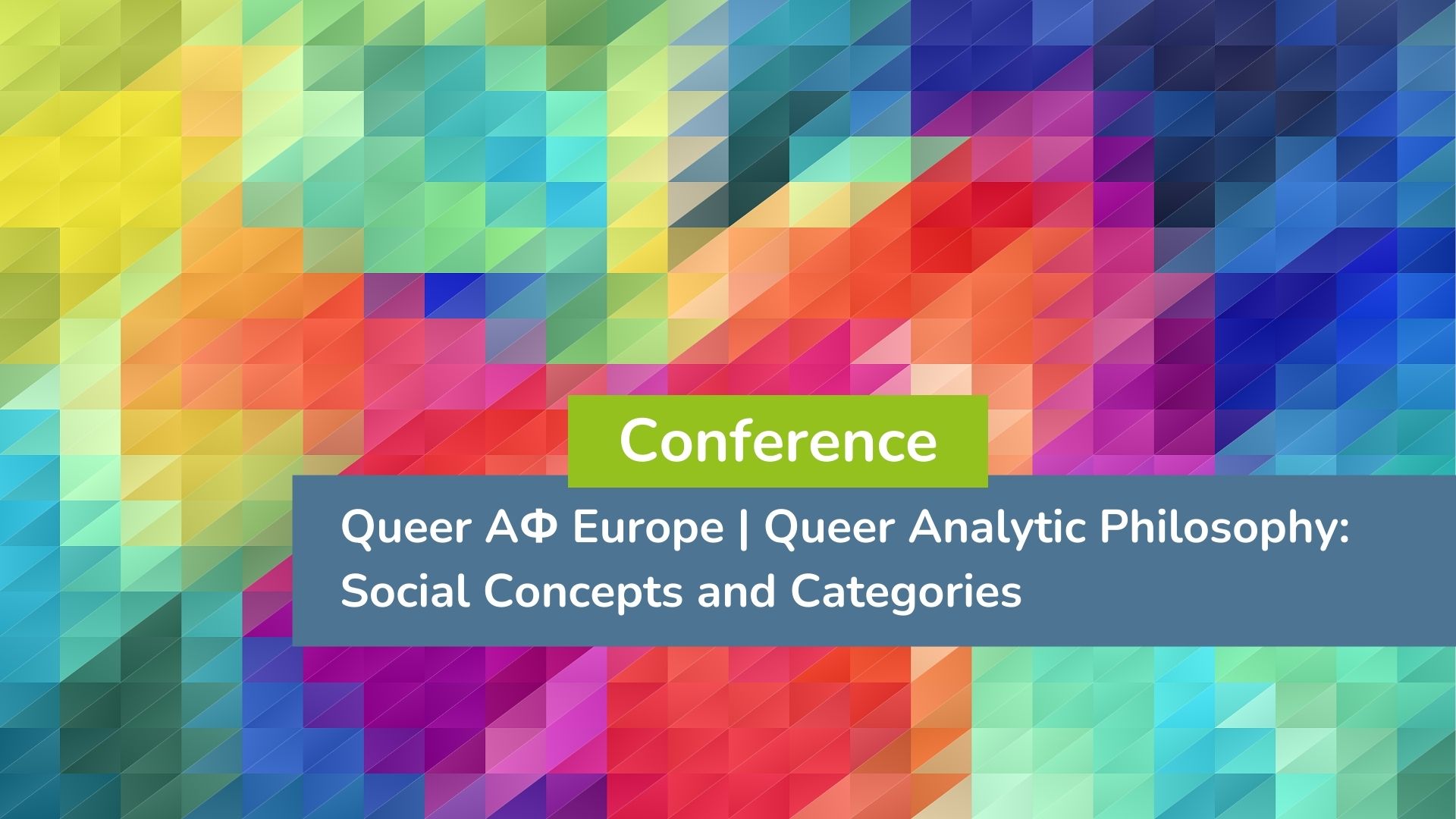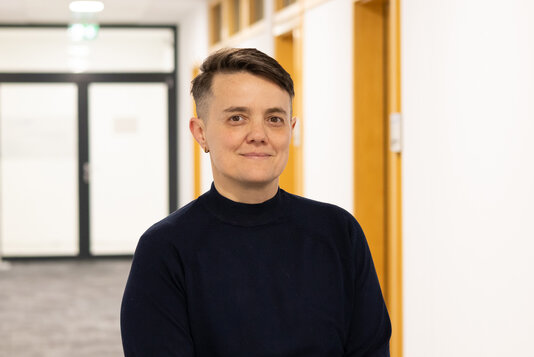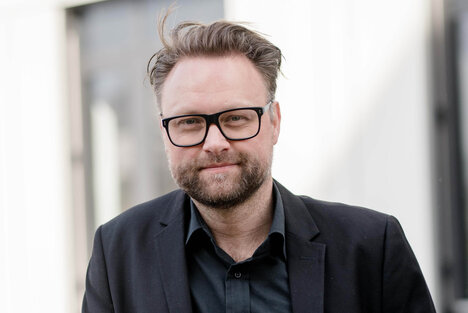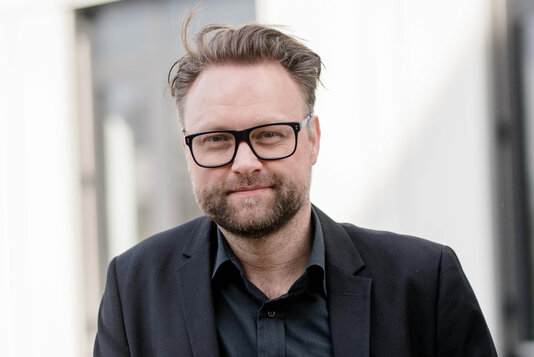
Analytic philosophy is able, at its best, to untangle large and seemingly ineffable questions. Social ontology and conceptual engineering aim to analyse ordinary concepts and categories, such as gender, race, sexual orientation, identity, as well as social emotions. This conference presents work in analytic philosophy that focuses on the nature and properties of the social world.

Analytic philosophy in the English-speaking world has been notoriously reluctant to engage in issues that affect public discourse, and has generally avoided political activism. This is despite the fact that this particular brand of philosophy, with its stress on clarity and on rigour, is able, at its best, to untangle large and seemingly ineffable questions, making them appear comprehensible and analysable through careful rational analysis.
This isolationist and a-political trend in analytic philosophy has now changed. Following the lead of feminist philosophers, analytic philosophy has seen the emergence of politically active work that directly engages the public. One branch of this work is in social ontology and conceptual engineering. This work aims to analyse ordinary concepts and categories, such as gender, race, sexual orientation, identity, as well as social emotions. This conference presents work in analytic philosophy that focuses on the nature and properties of the social world. It is concerned with analysing things in the world that arise from social interaction, and with explaining what makes them the things they are. The aim of this conference is also to foreground philosophical work in the analytic tradition that is informed by queer experience, community, and theorising, as well as to build community among queer scholars in philosophy.
The conference is co-organised by Nico Orlandi, a philosopher of mind and of cognitive science at the University of California Santa Cruz (USA) who is currently a Senior Fellow at the College, and Tobias Schlicht from Ruhr University Bochum.
Lunch
A Kind of Love
Matthew Andler, Saint Louis University, Madrid Campus (Spain)
Discussion by:
Jonna Vance, Northern Arizona University (USA)
Coffee break
Techbro Authoritarianism, Pronatalism, and the Technologies We Will Lose
Maren Behrensen, University of Twente (The Netherlands)
Discussion by:
Eric Llaveria Caselles, Technische Universität Berlin (Germany)
Coffee break
Sexual Orientation, Sexual Desire, Sex, and Gender
Esa Diaz Leon, University of Barcelona (Spain)
Discussion by:
Resa-Philip Lunau, Georg-August-Universität Göttingen (Germany)
Drinks and dinner

Prof. Nico Orlandi
University of California Santa Cruz (USA) | Philosophy of Mind and Cognitive Science
Nico Orlandi is a philosopher of mind and of cognitive science. Their work draws on the history of philosophy and on contemporary research in cognitive psychology, neuroscience, and in computer science. Orlandi is currently working on a project on concepts – what they are and how we learn them – with a particular focus on concepts of social categories. In the past, Nico Orlandi’s research has focused on perception – what kind of capacity it is, what it presupposes, and what kind of relationship it affords with the environment. In their first monograph, Orlandi developed an anti-constructivist account of perception that contrasts with philosophical and psychological orthodoxy.
Nico Orlandi received their PhD in 2007, and in 2011, while at Rice University, received a Phi Beta Kappa teaching award. Orlandi spent one year as a Fellow at the Stanford Humanities Center (USA) in 2012 and was a visiting researcher at the Riken Laboratory for Perceptual Dynamics in Tokyo, Japan (2010), at the Institut Jean Nicod in Paris, France (2016), and at the Rotman Institute of Philosophy in London, Ontario, Canada (2019). Nico Orlandi is originally from Italy, was born in Siena and did their undergraduate studies in Florence. Orlandi is a first-generation academic.
Website
 ©
© RUB Katja Marquard
©
© RUB Katja Marquard
Prof. Tobias Schlicht
Ruhr University Bochum | Philosophy of Consciousness and Cognition
E-mail: tobias.schlicht@rub.de
 ©
© RUB Katja Marquard
©
© RUB Katja Marquard
Prof. Tobias Schlicht
Ruhr University Bochum | Philosophy of Consciousness and Cognition
E-mail: tobias.schlicht@rub.de
Tobias Schlicht is Professor of Philosophy at Ruhr University Bochum’s Faculty for Philosophy and Education Science. His work is primarily focused on Consciousness and Cognition, topics at the intersection of philosophy and the empirical mind sciences, such as psychology and neuroscience.
Tobias Schlicht obtained his PhD in 2007 at the University of Cologne with a thesis on metaphysical theories of consciousness in light of the explanatory gap between physical and conscious processes. He has published three books on the mind-body problem and on social cognition. Three collections of papers cover questions about mental representation and on teleology, and a fourth one is currently in preparation on The Future of the Extended Mind (co-edited with Robert Rupert and Keith Harris) for Oxford University Press. He has also co-edited four special issues of academic journals on representation, predictive processing, and enactivism. His papers on topics in this area have been published in Philosophical Studies, Journal of Consciousness Studies, Philosophical Psychology, Behavioral and Brain Sciences, Frontiers in Psychology, Consciousness and Cognition, Phenomenology and the Cognitive Sciences, among others.
Personal Website: www.tobiasschlicht.com
Website
https://www.pe.ruhr-uni-bochum.de/philosophie/ii/bewusstsein/index.html.de